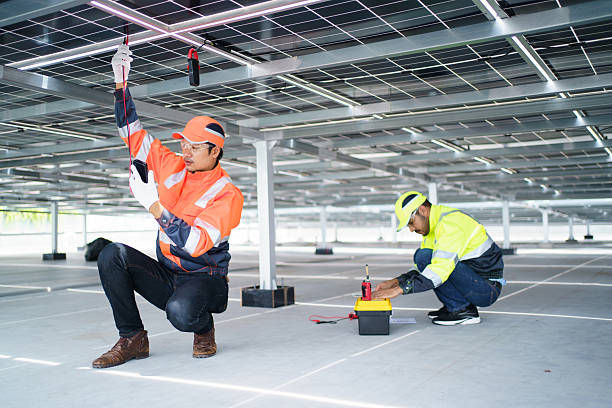Understanding the Role of a General Contractor in Construction Projects
- bhccorp
- Jun 1
- 4 min read
When embarking on a construction project, whether it's a residential remodel or a commercial build, one of the most crucial figures in the process is the general contractor. This integral role serves as the backbone of the project, overseeing the day-to-day operations, managing subcontractors, and ensuring that everything runs smoothly from start to finish. Understanding the responsibilities and significance of a general contractor can empower homeowners and business owners alike to make informed decisions and set realistic expectations for their construction endeavors.
What is a General Contractor?
A general contractor is a professional responsible for managing a construction project from its inception through its completion. They work closely with various stakeholders, including clients, architects, suppliers, and subcontractors. Essentially, the general contractor acts as the project manager, integrating all components of the construction process to bring the project to successful fruition.
To illustrate, consider a homeowner who wants to build a new home. They hire a general contractor to coordinate the project. The contractor will take charge of hiring subcontractors, including electricians, plumbers, and carpenters, as well as securing necessary permits and ensuring compliance with local building codes.

Key Responsibilities of a General Contractor
The responsibilities of a general contractor can be vast, encompassing a range of tasks crucial to the success of a construction project. Below are several key duties that highlight their importance:
Project Planning and Estimation
One of the first tasks a general contractor undertakes is the project planning phase. This involves estimating the total cost of the project, developing a timeline, and identifying the necessary resources.
For example, they will assess factors such as labor costs, material expenses, and other related costs to deliver a comprehensive budget to the client. This planning stage is essential for setting realistic expectations and ensuring that the project stays on track financially.
Hiring Subcontractors
General contractors often do not perform all construction tasks themselves. Instead, they hire specialized subcontractors for specific jobs. This could include electricians, plumbers, masons, or roofing specialists.
An effective general contractor will carefully vet these subcontractors based on their skills, experience, and reputation to ensure high-quality work. They will also negotiate contracts and manage these relationships throughout the project.

Managing the Construction Process
Once the project starts, the general contractor is responsible for managing the construction process. This includes scheduling subcontractors, meeting timelines, and monitoring the quality of work being performed.
Effective communication is vital at this stage, as contractors must coordinate various teams and ensure everyone is aligned with project goals. Regular site meetings and progress updates can help maintain this communication flow, allowing issues to be addressed promptly.
Ensuring Compliance and Safety
Compliance with local building codes, zoning laws, and safety regulations is a critical aspect of a contractor's job. General contractors must stay updated on legal requirements and ensure that all work adheres to these regulations.
Safety is another priority, with contractors required to implement safety protocols on-site to prevent accidents and injuries. This might involve providing safety training for workers and ensuring proper safety equipment is used at all times.
Final Inspections and Project Handover
As the project nears completion, the general contractor conducts final inspections to ensure that all work is up to standard. This involves reviewing the quality of construction and ensuring that all aspects meet the client's specifications.
Once everything is in order, the general contractor will hand over the project to the client, ensuring that they are satisfied with the completed work. They may also provide guidance on maintenance and care for the new construction.

The Benefits of Hiring a General Contractor
Opting to hire a general contractor comes with an array of benefits that can significantly enhance the overall success of a construction project. Here are a few advantages:
Time Efficiency
With a general contractor at the helm, tasks can be completed more quickly. They are experienced in scheduling and managing various contractors to ensure that the construction process flows seamlessly.
Cost-Effectiveness
While some may believe that hiring a general contractor adds to the overall project cost, it can ultimately save money. Their expertise helps avoid costly mistakes and delays, and their established relationships with suppliers often mean they can negotiate better prices on materials.
Stress Reduction
Construction can be a stressful process, but having a general contractor oversee everything can alleviate much of that stress. Clients can focus on their daily lives while knowing that their project is in capable hands.
Quality Assurance
General contractors have a wealth of experience in the industry. Their oversight ensures that work is completed to a high standard, and they will typically address any issues that arise promptly.
Selecting the Right General Contractor
Choosing the right general contractor is a critical step towards the successful realization of a construction project. Here are some tips for selecting the ideal contractor for your needs:
Check Qualifications and Experience
Start by verifying the qualifications of potential contractors. Ensure they are licensed and insured, and look for experience relevant to your specific project type.
For example, a contractor with extensive experience in commercial buildings may not be the best fit for a residential remodel.
Read Reviews and Ask for References
Take the time to read reviews online and ask for references from past clients. Speaking to previous clients can provide valuable insights into what it’s like to work with a particular contractor.
Get Multiple Estimates
Don’t settle for the first estimate you receive. Instead, obtain estimates from several contractors to get a better sense of the market rate for your project and ensure you are receiving a fair deal.
Communication is Key
With any contractor, clear communication is essential. Ensure that the contractor you choose is responsive and open to discussing your ideas and concerns. This can help establish a positive working relationship throughout the project.
Final Thoughts
The role of a general contractor in construction projects cannot be overstated. From project planning to final inspections, they serve as the linchpin of the construction process. By understanding what to expect from a general contractor, you can make more informed decisions and ultimately ensure the success of your construction endeavors.
If you’re considering starting a construction project, exploring various general contractor services can provide insight into what you can expect and how to choose the right partner for your needs.
By taking the time to research and understand the critical function of a general contractor, you can pave the way for a smoother, more efficient construction experience.



Comments